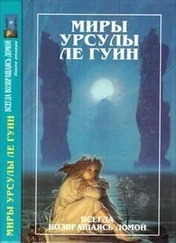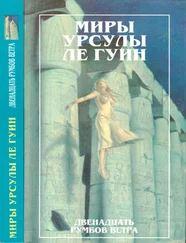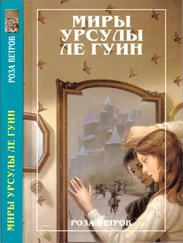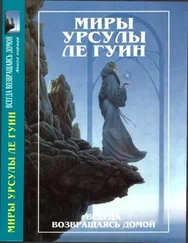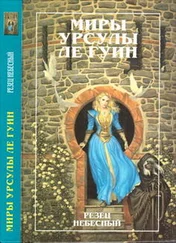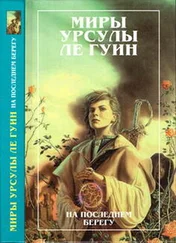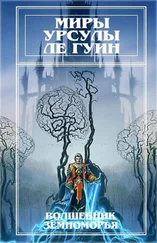—Michael Chabon
“One of the most original imaginations ever to grace American letters… Through decades and scores of books, the genre Le Guin made her own has itself grown up—writers from David Mitchell to Salman Rushdie have walked through the door Le Guin opened… To sit and talk with Le Guin is to engage a powerful mind that has responded to ideological entrapments or career bumps by carpentering a new space for itself. She is brisk and funny, but unsparing when asked to comment on something which, in her mind, does not measure up… She shows that stories that stand the test of time can come from something as simple as fellowship: like a family, like an extraordinary body of work, like a house built from a kit, standing proudly on a hill, more than a hundred years later.”
—John Freeman,
Boston Globe
“Le Guin, of course, has long been one of our most powerful writers of conscience.”
—David L. Ulin,
Los Angeles Times
“It’s hard to think of another living author who has written so well for so long in so many styles as Ursula K. Le Guin.”
—Scott Timber,
Salon
“She never loses touch with her reverence for the immense what is.”
—
Margaret Atwood
“Ursula K. Le Guin’s prose breathes light and intelligence. She can lift fiction to the level of poetry and compress it to the density of allegory.”
—
Jonathan Lethem
“There is no writer with an imagination as forceful and delicate as Le Guin’s.”
—Grace Paley
“Le Guin is a writer of enormous intelligence and wit, a master storyteller with the humor and force of a Twain. She creates stories for everyone from New Yorker literati to the hardest audience, children. She remakes every genre she uses.”
—Sarah Smith,
Boston Globe
“[Le Guin] is frequently referred to as ‘the best of’ for all manner of things—like best fantasy writer, best science fiction writer, best female writer—all of which is silly, as she both defies and accepts all categorization. Her influence on generations of readers and writers, from George R.R. Martin to Jennifer Egan to David Mitchell, is as evident as it is impossible to overstate. Admired for her quiet daring, her structures, and her inventions, most of all she is revered for her sentences.”
—Choire Sicha,
Interview Magazine
Connect with HMH on Social Media
Follow us for book news, reviews, author updates, exclusive content, giveaways, and more.
 https://twitter.com/HMHbooks
https://twitter.com/HMHbooks
 https://www.facebook.com/HMHBooks/
https://www.facebook.com/HMHBooks/
 http://hmhbooks.tumblr.com/
http://hmhbooks.tumblr.com/
 https://www.pinterest.com/hmhbooks/
https://www.pinterest.com/hmhbooks/
 https://www.instagram.com/hmhbooks/
https://www.instagram.com/hmhbooks/
 https://www.youtube.com/user/hmhbooks
https://www.youtube.com/user/hmhbooks

Copyright © 2017 by Ursula K. Le Guin
Introduction copyright © 2017 by Karen Joy Fowler
All rights reserved
For information about permission to reproduce selections from this book, write to trade.permissions@hmhco.comor to Permissions, Houghton Mifflin Harcourt Publishing Company, 3 Park Avenue, 19th Floor, New York, New York 10016.
hmhco.com
Library of Congress Cataloging-in-Publication Data is available.
ISBN 978-1-328-66159-3
Cover design by Martha Kennedy
Cover photograph © David & Myrtille / Arcangel
eISBN 978-1-328-66103-6
v1.1017
The illustration on page 154 Doggerel for My Cat His paws are white, his ears are black. When he isn’t around I feel the lack. His purr is loud, his fur is soft. He always carries his tail aloft. His gait is easy, his gaze intense. He wears a tuxedo to all events. His toes are prickly, his nose is pink. I like to watch him sit and think. His breed is Alley, his name is Pard. Life without him would be hard.
is by the author.
From Darwin’s autobiography: “I will give proof of my zeal: one day, on tearing off some old bark, I saw two rare beetles, and seized one in each hand; then I saw a third and new kind, which I could not bear to lose, so that I popped the one which I held in my right hand into my mouth. Alas! It ejected some intensely acrid fluid, which burnt my tongue so that I was forced to spit the beetle out, which was lost, as was the third one.”
Quotations pulled from Mohsin Hamid’s “Bookends” column, printed in the New York Times Book Review on October 15, 2013.
In the 1920s, on a great Peruvian hacienda with a private bullring, my parents watched matadors-in-training fight cows. The full ritual was performed, except that injury to the animal was avoided, and it did not end in a kill. It was the best training, my parents were told: after las vacas bravas , bulls were easy. An angry bull goes for the red flag; an angry cow goes for the matador.
Welcome responses to this blog post on Book View Café soon gave me both the sentence I wrote and a possible source of the misquotation. In the 1974 essay “Why Are Americans Afraid of Dragons?” (reprinted in the collection The Language of the Night ), I wrote: “I believe that maturity is not an outgrowing, but a growing up: that an adult is not a dead child, but a child who survived.” Nothing about “creativity” whatever. I was just hitting at the notion that maturity is mere loss or betrayal of childhood. The misquote may have first appeared on the Internet in 1999, in a huge and generally useful collection of quotations compiled by Professor Julian F. Fleron. When I wrote him, he was distressed to learn that it was a misquote, and most amiably removed it at once. But a false attribution on the Internet is like box elder beetles, the miserable little things just keep breeding and tweeting and crawling out of the woodwork. I checked just now (July 2016): Goodreads and AIGA continue to attribute the “creative adult” misquote to me. It has also taken on an independent existence, and is even referred to by one source as “the well-known saying.” Oh well!
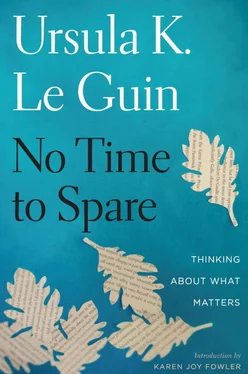
 https://twitter.com/HMHbooks
https://twitter.com/HMHbooks https://www.facebook.com/HMHBooks/
https://www.facebook.com/HMHBooks/ http://hmhbooks.tumblr.com/
http://hmhbooks.tumblr.com/ https://www.pinterest.com/hmhbooks/
https://www.pinterest.com/hmhbooks/ https://www.instagram.com/hmhbooks/
https://www.instagram.com/hmhbooks/ https://www.youtube.com/user/hmhbooks
https://www.youtube.com/user/hmhbooks
